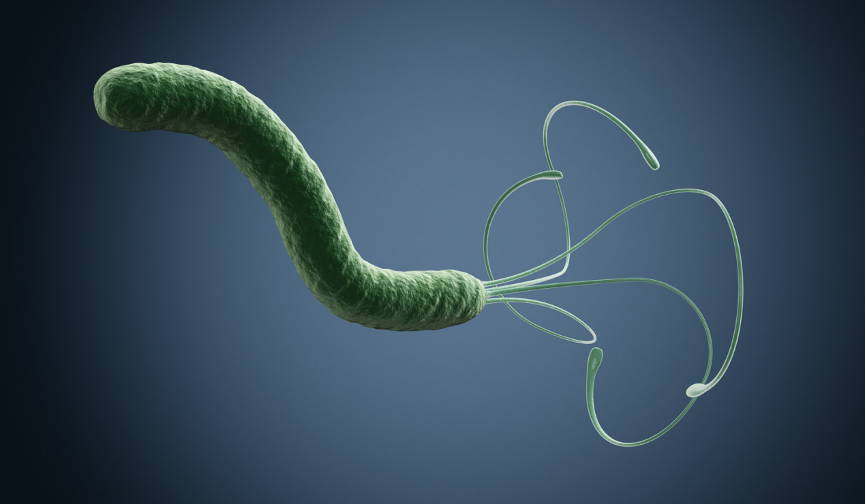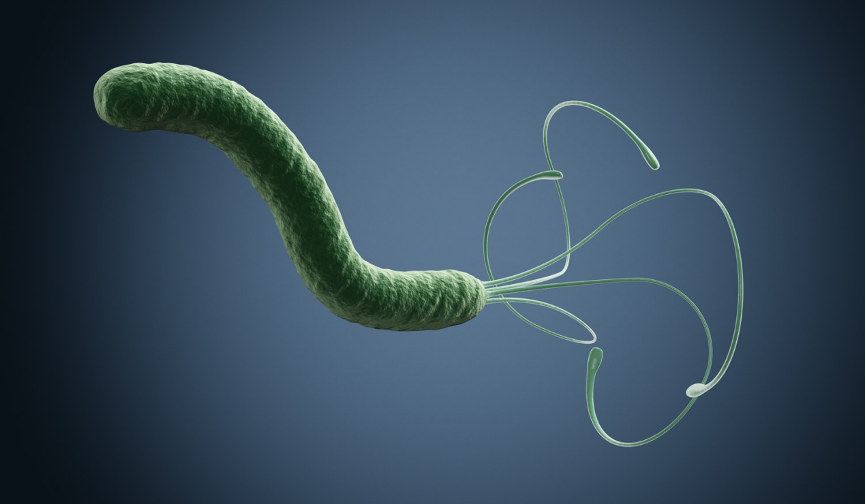Helicobacter pylori (abbreviated as Hp) has a high infection rate in China, but only a small number of infected patients were tested for Helicobacter pylori infection, and in the routine physical examination items, Helicobacter pylori infection test is only as an alternative project and was ignored by many people. Infection with H. pylori has many risks of disease, so screening is required as soon as possible. How to judge if you are infected with Helicobacter pylori? Here's take a look at Helicobacter pylori and the symptoms after infection.
Helicobacter pylori was first isolated and extracted by scientists from the gastric mucosa of gastritis patients in 1983. It is unipolar, multi-flagellar, blunt-ended, spiral-curved bacterium, about 2.5 microns to 4 microns in length and about 0.5 micron to 1 micron in width. It mainly lives in the gastric mucosa and is the only known pathogenic microorganism in the stomach. Helicobacter pylori infection causes 100% of active gastritis, but 70% of patients will not have any symptoms, unless they undergo gastroscopy, so this part of patients will not be found to be infected. 10% of people will undergo gastroscopy because of symptoms of indigestion, and the final diagnosis is active gastritis or peptic ulcer. Eighty percent of peptic ulcers are caused by Helicobacter pylori. Among patients with Helicobacter pylori, 15% to 20% of patients will develop peptic ulcers. At the same time, gastric cancer caused by Helicobacter pylori accounts for about 1%.
Next, let's take a look at the typical symptoms of Helicobacter pylori, and strive to achieve early detection and early treatment.
1. Bad breath
Helicobacter pylori is one of the most direct pathogens causing bad breath. After Helicobacter pylori infects the human body, it parasitizes and multiplies in the stomach. Helicobacter pylori can decompose urea to produce ammonia, hydrogen sulfide and methyl mercaptan, which are the main components of bad breath.
2. Gastrointestinal symptoms
Patients with gastritis and peptic ulcer will have corresponding symptoms, such as gastric ulcer pain and abdominal pain. These symptoms usually appear 1 hour after meals and can be relieved after 1 to 2 hours; when combined with duodenal ulcer, patients may experience abdominal pain at night, and may also experience pain on an empty stomach.
3. Skin problems
There is clinical evidence that H. pylori infection is also associated with severe acne, rosacea, and eczema. After H. pylori is gone, acne may go away.
Finally, if the infection of Helicobacter pylori is found and there is an indication for the need to cure HP, you should seek medical treatment as soon as possible, and use quadruple therapy for eradication treatment. After the eradication treatment is completed, the Helicobacter pylori can be re-examined at least 4 weeks later. For asymptomatic or family history of H. pylori infection, eradication therapy is not recommended.



